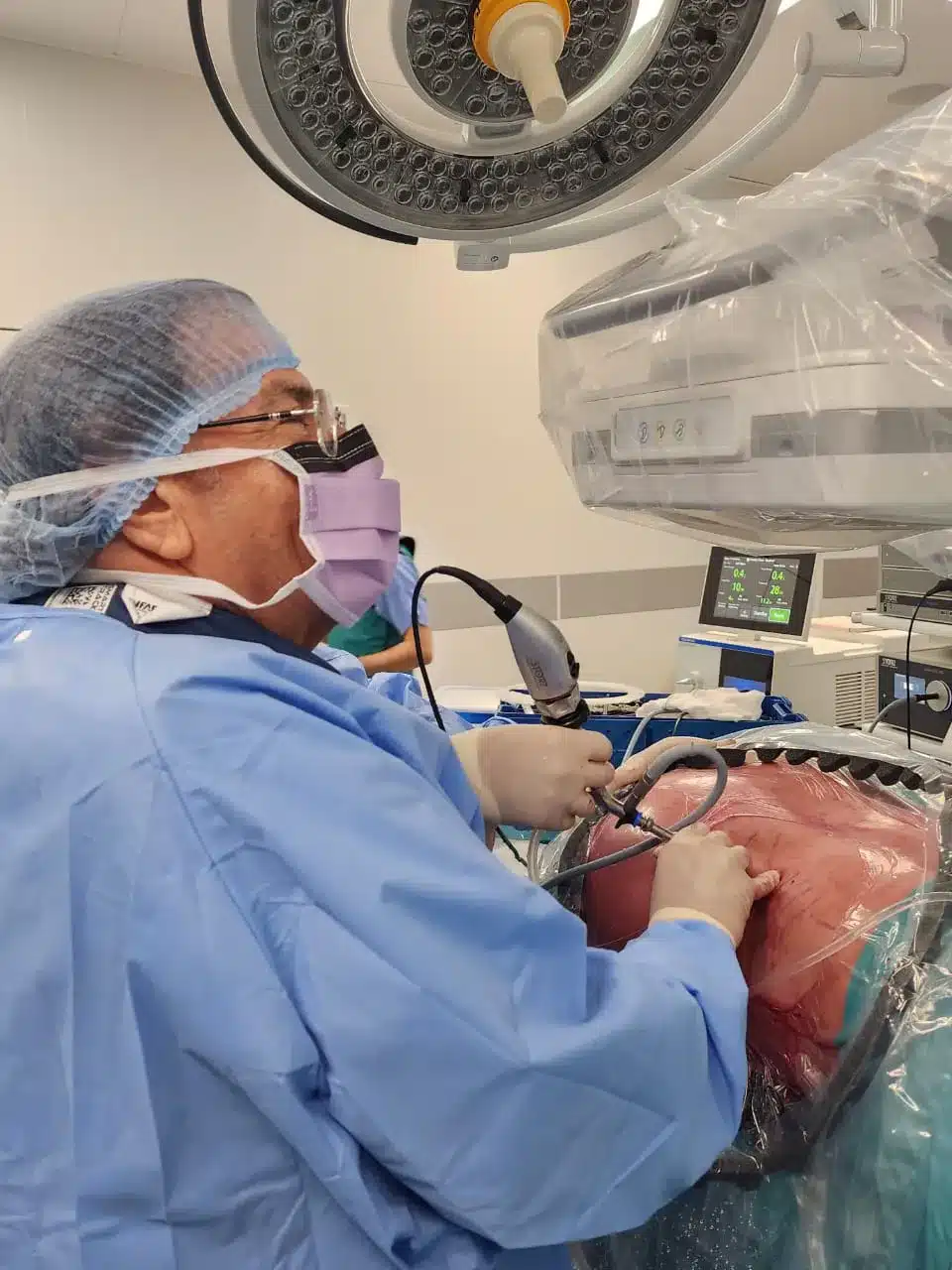Surgical techniques
-
Main surgical procedures used in our medical centre in King's College London Hospital, American Hospital and Dubai HealthCare City Hospital.
1- Laparoscopic or open radical retropubic and nerve –sparing prostatectomy with pelvis lymphadenectomy for prostate cancer. 30 years experience and about 5000 operations.
2- Laparoscopic Bilateral Varicocelectomy 60% and additionally 40% conservative treatment for male infertility. 10000 operations and 98% pregnancy success.
3- Green Laser – Vaporization for Large prostatic enlargement more than 50 grams and TUR prostate by less than 50 grams. benign prostatic hyperplasia (BPH). about 15000 operations and 22 years experience -
4- Endoscopic Laser Urethrotomy for short urethral structure & surgical Urethroplasty with buccal or penile island flap (graft) for long anterior or bulbous or membranous urethral stricture. Acquired urethral strictures (multiple or single) ( latrogenic or traumatic or congenital or rarely infectious of inflammatory). 30 years experience and about 5000 operations and 90% success.
5- Botox –A Injections of the bladder wall in overactive bladder with urge incontinence especially with conservative therapy resistance. 10 years experience & 2500 operations with 98% success.
6- Surgical (bilaterally) or Laparoscopic (unilaterally) Ureter reimplantation for vesicoureterorenal reflux stage 4 and 5 and Endoscopic for stage 1,2,3 with submuccal injectable bulking agents at the refluxing ureteral orifice in children. 20 years experience & 5000 operations and 98% success
7- Green- Laser- Lithotripsy for Distal or Middle or Proximal Ureter stones more than 5mm in diameter and renal pelvis and calyxes stones with flexible ureteroscopy (URS as well PCLN and ESWL) 20-year experience & 15000 operations with 98% success
8- Inguinal Orchidopexy Cryptorchidism in children with inguinal testes and Laparoscopic Orchidopexy in abdominal testes. 20-year experience and about 6000 operations with 98% success & 300 operations with 90% success -
9- TVT -,TOT, or Laparoscopic Sacropexy for female and male stress incontinence. 20-year experience and 4000 operations with 90% success.
10- EndoscopicTUR- BL Tumor with Diode – Laser – Vaporization for Bladder Cancer. 30 year experience and 15000 operations with 90% success
11- Laparoscopic Partial Nephrectomy in small renal cancer measuring less than 4cm in diameter and Laparoscopic Radical Nephrectomy in Renal cancer with more than 4cm in diameter with Removal of Adrenal gland and neighboring lymph nodes. 20 years experience and 7000 operations.
12- Radical Inguinal Orchiectomy for non seminomatous testicular Cancer and Retroperitoneal Lymphadenectomy. 30 year experience and 3000 operations with 98% success.
13- Penile Prosthesis for Sexual Impotence. 30-year experience with 98% success.
14- Ultrasound Guided Prostatic Biopsy under spinal anesthesia.



آراء المرضى
نعمل جاهدين لتحقيق أعلى معدلات الرضا والنجاح لدى جميع مرضانا
أهم الأسئلة الشائعة
Varicocele is the dilation of the veins in the scrotum, forming a network of veins around the testicles.
Blood congestion occurs in the testicular region, affecting the health of sperm in terms of count, motility, and morphology. Varicocele is categorized into three stages:
The first stage is often discovered incidentally, as the patient may not complain of any symptoms. It may be detected during necessary tests for addressing fertility issues, and diagnosis is confirmed through ultrasound.
The second stage involves a larger number of dilated and engorged veins, which can be palpated by the doctor during a clinical examination.
The third stage is the most critical, where engorged veins are visible to the naked eye and significantly impact fertility. This stage is associated with a substantial delay in conception.
There are many cases of individuals with varicoceles who have successfully conceived, as the severity of varicoceles varies, as mentioned earlier. Yes, it does impact fertility, and perhaps this is the sole factor causing delayed conception. However, the higher the degree of varicoceles, the greater the likelihood of delayed conception.
A urologist and fertility specialist examine the penis to assess the level of tactile sensation. If there is a lack of sensitivity, it may indicate nerve-related issues. In the case of Peyronie’s disease, such abnormalities may also be observed during the examination. Hormonal changes are detected through a body examination, assessing the condition of the breast tissue, checking for excessive hair growth in specific areas. Furthermore, blood circulation is examined by measuring blood pressure, checking heart rate, and assessing pulses in the hands and feet.
A penile implant surgery is a procedure designed to address erectile dysfunction and has achieved high rates of success according to global statistics. Widely practiced and straightforward, this surgery may not require overnight hospital stay for the patient. In use for nearly four decades, the implant allows the penis to maintain a sustained erection for as long as desired, in a full and natural state. Importantly, it does not impact the general appearance, sensation, or pleasure of the organ. Simply put, the penile implant consists of two cylinders that provide a strong rigidity. These erection-supporting implants are placed inside the cavernous bodies, and as a result, they are not noticeable externally after implantation. They are situated within the cavernous body, covered by the skin and tissues of the penis. It’s worth noting that the surgery does not replace natural tissues but rather adds significant rigidity when needed.”
Intractable male infertility is defined as a condition where there is a complete absence of sperm due to total or partial atrophy of the testicles. This leads to the inability of couples to achieve pregnancy. It also indicates the failure of various treatment methods and their inability to achieve the desired results.
Male infertility is classified as intractable based on the following:
Non-obstructive Azoospermia: In this condition, the man is unable to produce sperm due to an issue in the testicles. It is treated with microscopic surgery, where sperm is extracted from the testicle by making a small incision in the scrotal sac. High-precision microscopy is used to locate and collect sperm from the testicles.
Obstructive Azoospermia: Here, the testicles do not produce a sufficient amount of seminal fluid, despite the presence of healthy sperm. This condition is common in men who have undergone a vasectomy. Treatment involves identifying the cause and addressing it.

